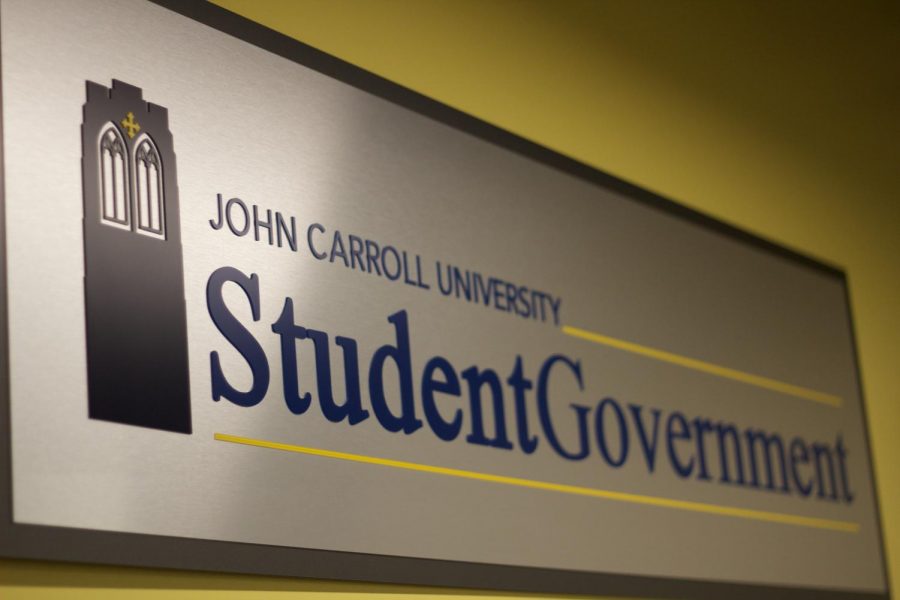Student Government rejects bills to increase executive power
Student Government voted on legislative bills which impact future proceedings in various areas.
Feb 25, 2021
John Carroll University Student Government has been quite busy for the last couple of weeks. Legislative bills about the future of Student Government and the student body of JCU were recently reviewed and voted upon.
The process of passing a bill begins when Executive Vice President Margaret Skubik ‘22 reads the bill aloud, which opens the floor for debate and commentary on said bill. If the bill is a resolution, recommendation or appointment, voting occurs immediately. A simple majority vote of senators is required to pass such a bill. However, amendments sit for a week before being voted on. Amendments require a two-thirds supermajority vote.
Two bills for an Adoption of Interim Policies passed on Feb. 9, which allow Student Government to operate more smoothly in emergency situations. Senator Collin Derrig ‘21 explained in more detail. “It simply means that in the case of an emergency situation that prevents operation as normal — for example the suspension of in-person learning because of the COVID-19 pandemic last year — that the Student Government can operate with short-term emergency policies that don’t fit all the usual constitutional rules,” Derrig said.
The COVID-19 Dashboard Bill, which was also passed on Feb. 2, encourages “the University Administration to update the online COVID-19 dashboard more frequently…”
Originally, the administration only updated the dashboard every Friday. Students wanted to be constantly aware of how many cases were on campus, so the bill proposed that the dashboard be updated daily, if possible. This bill ensures honesty within the John Carroll community in regard to COVID-19 cases on campus.
There were various bills that failed, such as the Executive Authority Bill and the Chief of Staff Bill.
The Executive Authority Bill proposed that the president of Student Government gain the ability to enact reasonable legislation in certain situations and he or she must notify the Senate of the importance of the legislation.
“The Executive Authority Bill did not pass for a few reasons,” said Mathew Meyer, the president of Student Government. “The main dissenting opinion came from our most experienced members, in that they were hesitant to concentrate any additional power in the executive branch, as the legislative power is to be held by the Senate, which more directly represents the student body.”
The Chief of Staff Bill was proposed to recognize the position as an Executive Board position within the General Bylaws and Constitution.
“The Chief of Staff Bill (which would have recorded the position as a member of the executive board) failed, as a large portion of the Senate believed that the Chief of Staff best serves the Student Government as a pivotal and floating aide to both the Senate and Executive Board, not only the Executive Board alone,” Meyer explained.
These answers are solely on the behalf of the president, not the entire Student Government establishment or the Senate as a whole, Meyer stressed.
Derrig said, “Two more bills about the position of chief of staff were proposed last week and will be voted upon this week.”













